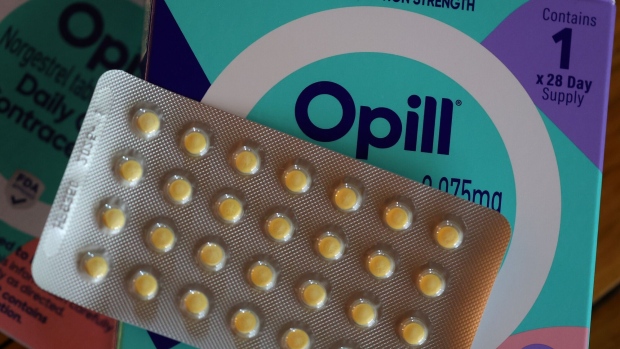Apr 4, 2024
CVS Drug Plans to Allow No-Cost Access to OTC Birth Control
, Bloomberg News

(Bloomberg) -- CVS Health Corp. drug plans will cover over-the-counter oral birth control in the US, a step that further removes barriers to obtaining oral contraception as reproductive rights increasingly come under fire.
Opill, the nonprescription drug from Perrigo Co., will be added to the preventive services oral contraceptives list and will be covered at no cost for many plan sponsors, CVS Caremark said in a pharmacy update dated March 28 that was viewed by Bloomberg News.
Perrigo is “thrilled” that the CVS plans will expand access to Opill, Triona Schmelter, Perrigo’s executive vice president for consumer self-care Americas, said in a statement. The drugmaker’s shares rose as much as 4.6% on the news before paring gains. A CVS representative referred to the pharmacy update.
CVS Caremark was the largest prescription drug manager in 2022, with one-third of the market, according to Drug Channels Institute. The company says it serves 89 million people, so the move has the potential to expand access to free, nonprescription birth control to vast numbers of Americans.
The US Food and Drug Administration cleared Opill for nonprescription use last summer, making it the country’s first over-the-counter oral birth control product. While birth control is free when prescribed by a doctor, state Medicaid programs and insurers aren’t required to cover over-the-counter versions, which created potential for patient costs that might make the pill inaccessible to some people.
Read More: First US Over-Counter Birth Control Priced at $19.99 a Month
Lack of insurance coverage was a concern as Opill hit the shelves of major drugstores, like CVS and Walgreens Boots Alliance Inc. Perrigo had suggested a monthly retail price of $19.99, while advocacy groups like Free the Pill have supported a retail price of no more than $15 for a three-month supply.
Almost half of the 6.1 million annual US pregnancies are unintended, according to the FDA. Such pregnancies reduce the likelihood that parents will seek early prenatal care and raise the risk of preterm delivery and other adverse health outcomes.
(Updates with Perrigo comment, shares from third paragraph)
©2024 Bloomberg L.P.


